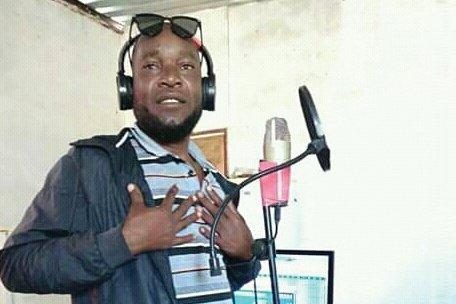Each person has a way of soothing their pain; something which keeps them cool, calm and collected. Many believe in the power of music as it spreads powerful messages. This is also the observation of Erastus “Mr Yola” Halweendo of Lion Roar Production (LRP), a music production house in Ondangwa.
Thirty-seven-year-old Halweendo runs LRP from his home in Onguta location, in the heart of Ondangwa. I recently caught up with this versatile musician and producer to experience firsthand what he is doing behind the scenes.
Halweendo started doing music way back in 2010, shortly after completing school. “Although I was involved to some extent in music at school as a dancer, I never thought I would pursue it after school. Back at high school, we had a dancing group called the “Slaves” and we would sing and dance mostly over popular reggae songs during weekends at our school. Our popular artists were Lucky Dube, Bob Marley, Peter Tosh and many other Caribbean greats. And fellow students would pay N$1 as an entrance fee,” the Ohangwena-born artist says.
After high school, Halweendo settled in Ondangwa, where he befriended an Angolan national. “This guy was mad about music, and he had a backyard studio. He was producing kizomba music for his compatriots who came from Angola. Throughout our friendship, he taught me how to produce music, and it was there where I honed my music skills,” he remembers.
As of yet, Halweendo produces reggae, kwaito, kizomba, hip-hop, gospel, shambo and Afro pop. “I do write, master and record my own songs. I also produce and manage some upcoming artists from Ondangwa and surrounding areas,” the father of three adds.
Artists under his label are popular northern kwaito artists Kaboy Kamakili, Rude Boy, Small Boy, Skorpion and DJ Nangy, the only female artist under the LRP label.
Halweendo underscores the importance of music in society. “Most people have a preposterous assumption that music is only done for commercial purposes. Unfortunately, that is a false narrative. Music has a deep connection with many people. When a person is down, they can always listen to their favourite song or music. It can uplift their spirits. When things go pear-shaped in life, music can soothe the pain and arrest the situation. Even some of the most uncivilised communities on earth make music of some sort,” he says.
He encourages fellow artists to do music for the love of it and not for the money, and to spread powerful messages across communities and nations.
“I am self-employed and invested in this studio to produce music and help fellow artists, especially the upcoming ones who cannot be accommodated elsewhere or who do not have money to record elsewhere. I always tell them they should put all their energy into their work and work hard. Many come here wanting quick success and demanding an album overnight. To those I say: ‘If you want an album, prove yourself. We cannot produce trash. We should produce quality music. If you’re unable to do that, you don’t belong here!’ And that is the reason none of us, including me, has an album yet. However, most of our singles are enjoying airtime on many local radio stations.”
The LRP crew performs at local music events and gets booked for shows. “This is because of the way I handle them. I have coached them on how to handle interviews and to behave in public in order to keep their reputation, image and names intact. Sometimes fame can destroy a talent. My artists know this. They know the consequences and the price you pay for indiscipline.”
And, what could this price be? Halweendo scratches his beard while responding: “A two-month ban on all music activities connected to the label, including shows. You know, we have contracts with several town councils and businesses where we entertain their guests now and then. So, for example, when one of our artists drinks in public and misbehaves or starts a fight and it appears on social media, it dents our brand. So we don’t allow that,” he explains.






